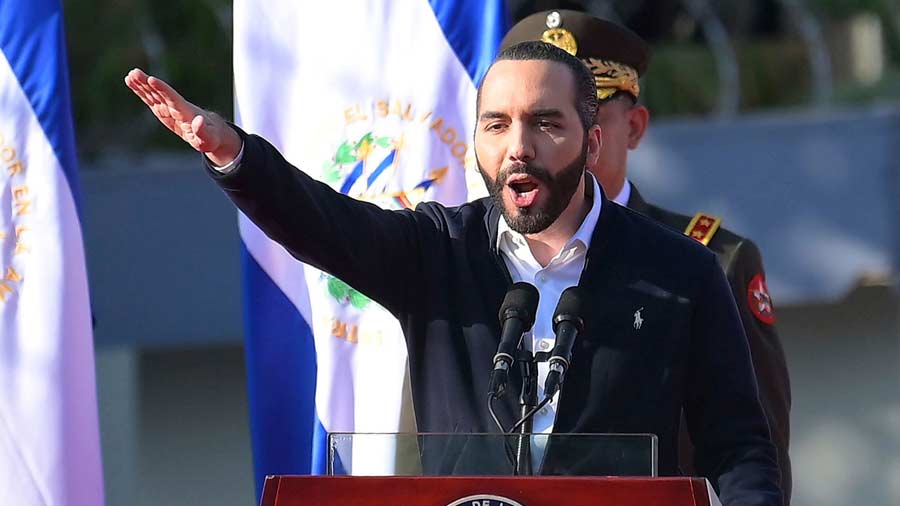
In 2020, the President of the Republic continued to walk a dangerous path of blows to democratic institutionalization.
The young Salvadoran democracy is facing some of its strongest challenges with the presidency of Nayib Bukele.
The most visible democratic defeat took place on February 9, when the president ordered a military and police takeover of the Legislative Palace, in order to unduly pressure deputies to approve a credit.
This provoked harsh questions from the international community who here discovered that the “youthful and fresh” president emulated rotten practices of political bullying and authoritarianism.
Read also: Bukele’s abuses of power lead to the US. UU. To cut military aid to El Salvador
The president also continued the practices of previous governments to disqualify the Constitutional Chamber when it limited its power, especially when it banned the police from making illegal catches, which the president encouraged to continue to do.
These are the signs of abuse of power committed by the Salvadoran government in 2020.
Following the script of other authoritarian leaders in the world, Bukele has obstructed control institutions, manipulated security forces to fold on his political agenda, and flirted with militarism.
He has also launched attacks on opponents, who have received the weight of the state for questioning government management.
Enemy of the press, of the questions of professional and technical sectors, the president and his officials have not spared resources to insult, denigrate and harass.
Cases not to forget:
9F
The day the democratic mask of government fell and its authoritarian impulse to press and co-opt by force was revealed instead of negotiating and dialogue to find political solutions. That day, Bukele used the security forces as armed arms of his whims and as tools of harassment and intimidation of his opponents.

From 9F, the democratic mask of Nayib Bukele collapsed and in the United States began to see its closeness to authoritarianism. Photo EDH / Archive
Human rights abuses
A key pillar of authoritarianism is contempt for the fundamental rights of citizens. During the first months of the pandemic, Bukele endorsed arbitrary seizures and abuses of power, as well as tackling the health crisis with improvisation and a militarized twist.
Challenge in the Hall
The Bukele government has openly challenged court orders. On April 16, the president said he would not abide by the ruling banning him from arbitrarily capturing alleged confinement violators and motivating police to continue to do so. In addition, its officials have replicated this disobedience.

A UCA report coincides with reports from the Office of the Attorney General for the Defense of Human Rights on violations committed by the government in illegal detentions and in “containment centers.” Photo EDH / Archive
weakens institutions
In addition to his constant attacks on MPs and the Constitutional Chamber, the president constantly beats other institutions controlling his management such as the Court of Auditors or the IAIP. This makes it easier for him to govern without limits and not be subject to orders that contradict his whims.

The latest appointments of commissioners to the IAIP threaten the independence of this institution, criticize transparency experts. Photo EDH / Archive
Politics PNC and Armed Forces
The president despises the Peace Accords and, it seems, one of its main results: professionalizing the security forces. Instead, he has used them as tools to promote his political intentions, which has led to human rights violations and crimes.

The police director was overruled for the offense of breach of duty, for an error in the procedure, but the judge reminded him that “we are not in a monarchy” and must obey the laws. photo EDH